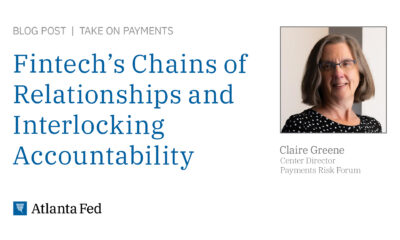Fintech
Navigating the fintech media landscape: Top trends you can’t afford to miss

THE fintech and financial services sector has seen extraordinary growth and transformation in recent years, reshaping the way financial technology companies interact with their customers and conduct business.
As we approach 2024, a number of significant trends are emerging across the fintech media landscape. From integrated payments to evolving regulations, fintech and finserv marketers must remain aware of these trends and develop distinct perspectives to ensure impactful media coverage in this rapidly evolving industry.
1. Embedded payments
Think about how you use your Uber app, where paying for your ride requires nothing more than a simple tap. While the process may seem simple from the user’s perspective, there is a lot happening on the backend. Integrated payments provide businesses and customers with a quick and easy way to pay for a product or service.
Integrated payments have exploded in recent years, particularly in the B2B fintech sector. Independent software vendors (ISVs) and other technology providers have discovered the value of having active payments within their platform, rather than creating unnecessary friction by sending their customers to a third-party site.
In DevPro Journal, Peter Galvin, chief growth officer at NMI, said: “…payment integration is vital for ISVs to ensure a seamless brand, UX and payment process when users interface with the their software platform.” This strategy improves user experience and opens a new revenue stream for fintech software providers by allowing them to monetize their payment solutions in collaboration with business partners.
Another aspect accelerating integrated payments is the growing prevalence of data sharing and open application protocol interfaces (APIs). Thanks to APIs, businesses and financial institutions can now easily delight customers and introduce new services with a simple click, eliminating the need to build their own proprietary infrastructure.
2. CFPB Regulation
Rohit Chopra, director of the Consumer Financial Protection Bureau (CFPB), has introduced several new regulations on the agenda for 2024. cut late fees on credit cards from giving consumers more control over their financial data to overseeing Big Tech’s entry into payments, there’s a lot coming in the second half of 2024.
These regulations will have important implications for businesses and institutions, especially when it comes to data. Fintech organizations will need to remain vigilant, keep abreast of new regulations and understand the requirements they place on them and their partners.
Following an executive order from President Biden earlier this year, Chopra made clear her intention to propose rules that would limit the activities of data brokers. In doing so, he underlined the need for greater protection to safeguard people and national security from harmful data practices.
The evolution of these regulations will have a significant impact on how fintech and financial services companies generate revenue, structure their operations and provide their services. Fintech organizations will need clear guidelines to ensure proper compliance and make necessary changes.
3. Financial inclusion
Financial inclusion remains a critical issue, particularly for populations historically marginalized or overlooked by traditional financial systems. Factors contributing to the exclusion of these groups include geographic barriers, insufficient documentation, high costs, and discriminatory practices.
Second Forbes, there are approximately 6 million unbanked individuals in the United States. Lack of access to traditional financial institutions not only perpetuates cycles of poverty, but also stifles innovation. Emerging markets around the world are poised to drive significant advances in business and technology, but face barriers to ensuring fair financial services. To address this problem, countries, such as Nigeriathey are prioritizing financial inclusion goals.
Innovations in financial technology have made significant progress in dismantling barriers to financial inclusion. Mobile wallets, real-time payments, cross-border payments, neobanks and virtual currencies stand out as some of the most noteworthy developments in the industry. Companies that leverage these innovations have the potential to make serious progress on inclusion, unlocking new opportunities and tapping into global talent pools in an increasingly competitive landscape.
4. The fintech AI gold rush
Like many industries, fintech and banking have adopted advanced artificial intelligence and machine learning technologies to drive advances in data analytics, automation, and personalization. As the industry continues to grapple with regulatory, privacy and security issues, more and more fintechs are incorporating AI into their product offerings.
Whether they are already integrating AI into their platforms or planning future adoption, banks and fintechs are making massive investments in AI-powered technology. A 2020 McKinsey report estimates that AI technologies have the potential to generate up to $1 trillion in value for global banks. These innovations promise to not only improve customer experiences, but also significantly improve financial outcomes by automating a range of tasks, from risk management and fraud detection to customer service and investment management.
5. Real-time payments and FedNow
The Federal Reserve’s launch of the FedNow service last summer marked a significant development in real-time payments in the United States, facilitating immediate processing of transactions.
By the end of 2023, Over 300 financial institutions (FIs) were using the FedNow service, and more are expected to join throughout 2024. However, while many FIs are willing to accept real-time payments, many are wary of sending them. Despite low fraud rates in real-time payments (e.g Clearing House RTP net is 0.1%), financial intermediaries continue to worry that real-time payments offer little opportunity to identify suspicious or fraudulent transactions, causing hesitancy to adopt real-time payment solutions or sign up for FedNow.
Nonetheless, real-time payments have the potential to fundamentally reshape the business landscape and economy, offering benefits that go beyond simple speed. For example, businesses will be able to gain better access to capital and cash flow because they will no longer have to wait for funds to be processed. Not to mention, real-time payments are transmitted with multiple data formatted according to a global messaging standardresulting in more efficient treatment for businesses.
As mentioned above, real-time payments also help promote financial inclusion. Beyond the B2B perspective, real-time payments could make it easier and faster for people to pay bills, access paychecks, and even support supply chain and healthcare financing to create smoother payment processes .
As a fintech organization, staying ahead of emerging industry trends is non-negotiable, and we’re here to help. Get in touch to learn more about how Walker Sands can help your fintech organization stand out from the crowd and stay ahead of the curve.
Fintech
US Agencies Request Information on Bank-Fintech Dealings

Federal banking regulators have issued a statement reminding banks of the potential risks associated with third-party arrangements to provide bank deposit products and services.
The agencies support responsible innovation and banks that engage in these arrangements in a safe and fair manner and in compliance with applicable law. While these arrangements may offer benefits, supervisory experience has identified a number of safety and soundness, compliance, and consumer concerns with the management of these arrangements. The statement details potential risks and provides examples of effective risk management practices for these arrangements. Additionally, the statement reminds banks of existing legal requirements, guidance, and related resources and provides insights that the agencies have gained through their oversight. The statement does not establish new supervisory expectations.
Separately, the agencies requested additional information on a broad range of arrangements between banks and fintechs, including for deposit, payment, and lending products and services. The agencies are seeking input on the nature and implications of arrangements between banks and fintechs and effective risk management practices.
The agencies are considering whether to take additional steps to ensure that banks effectively manage the risks associated with these different types of arrangements.
SUBSCRIBE TO THE NEWSLETTER
And get exclusive articles on the stock markets
Fintech
What changes in financial regulation have impacted the development of financial technology?

Exploring the complex landscape of global financial regulation, we gather insights from leading fintech leaders, including CEOs and finance experts. From the game-changing impact of PSD2 to the significant role of GDPR in data security, explore the four key regulatory changes that have reshaped fintech development, answering the question: “What changes in financial regulation have impacted fintech development?”
- PSD2 revolutionizes access to financial technology
- GDPR Improves Fintech Data Privacy
- Regulatory Sandboxes Drive Fintech Innovation
- GDPR Impacts Fintech Data Security
PSD2 revolutionizes access to financial technology
When it comes to regulatory impact on fintech development, nothing comes close to PSD2. This EU regulation has created a new level playing field for market players of all sizes, from fintech startups to established banks. It has had a ripple effect on other markets around the world, inspiring similar regulatory frameworks and driving global innovation in fintech.
The Payment Services Directive (PSD2), the EU law in force since 2018, has revolutionized the fintech industry by requiring banks to provide third-party payment providers (TPPs) with access to payment services and customer account information via open APIs. This has democratized access to financial data, fostering the development of personalized financial instruments and seamless payment solutions. Advanced security measures such as Strong Customer Authentication (SCA) have increased consumer trust, pushing both fintech companies and traditional banks to innovate and collaborate more effectively, resulting in a dynamic and consumer-friendly financial ecosystem.
The impact of PSD2 has extended beyond the EU, inspiring similar regulations around the world. Countries such as the UK, Australia and Canada have launched their own open banking initiatives, spurred by the benefits seen in the EU. PSD2 has highlighted the benefits of open banking, also prompting US financial institutions and fintech companies to explore similar initiatives voluntarily.
This has led to a global wave of fintech innovation, with financial institutions and fintech companies offering more integrated, personalized and secure services. The EU’s leadership in open banking through PSD2 has set a global standard, promoting regulatory harmonization and fostering an interconnected and innovative global financial ecosystem.
Looking ahead, the EU’s PSD3 proposals and Financial Data Access (FIDA) regulations promise to further advance open banking. PSD3 aims to refine and build on PSD2, with a focus on improving transaction security, fraud prevention, and integration between banks and TPPs. FIDA will expand data sharing beyond payment accounts to include areas such as insurance and investments, paving the way for more comprehensive financial products and services.
These developments are set to further enhance connectivity, efficiency and innovation in financial services, cementing open banking as a key component of the global financial infrastructure.
General Manager, Technology and Product Consultant Fintech, Insurtech, Miquido
GDPR Improves Fintech Data Privacy
Privacy and data protection have been taken to another level by the General Data Protection Regulation (GDPR), forcing fintech companies to tighten their data management. In compliance with the GDPR, organizations must ensure that personal data is processed fairly, transparently, and securely.
This has led to increased innovation in fintech towards technologies such as encryption and anonymization for data protection. GDPR was described as a top priority in the data protection strategies of 92% of US-based companies surveyed by PwC.
Financial Expert, Sterlinx Global
Regulatory Sandboxes Drive Fintech Innovation
Since the UK’s Financial Conduct Authority (FCA) pioneered sandbox regulatory frameworks in 2016 to enable fintech startups to explore new products and services, similar frameworks have been introduced in other countries.
This has reduced the “crippling effect on innovation” caused by a “one size fits all” regulatory approach, which would also require machines to be built to complete regulatory compliance before any testing. Successful applications within sandboxes give regulators the confidence to move forward and address gaps in laws, regulations, or supervisory approaches. This has led to widespread adoption of new technologies and business models and helped channel private sector dynamism, while keeping consumers protected and imposing appropriate regulatory requirements.
Co-founder, UK Linkology
GDPR Impacts Fintech Data Security
A big change in financial regulations that has had a real impact on fintech is the 2018 EU General Data Protection Regulation (GDPR). I have seen how GDPR has pushed us to focus more on user privacy and data security.
GDPR means we have to handle personal data much more carefully. At Leverage, we have had to step up our game to meet these new rules. We have improved our data encryption and started doing regular security audits. It was a little tricky at first, but it has made our systems much more secure.
For example, we’ve added features that give users more control over their data, like simple consent tools and clear privacy notices. These changes have helped us comply with GDPR and made our customers feel more confident in how we handle their information.
I believe that GDPR has made fintech companies, including us at Leverage, more transparent and secure. It has helped build trust with our users, showing them that we take data protection seriously.
CEO & Co-Founder, Leverage Planning
Related Articles
Fintech
M2P Fintech About to Raise $80M

Application Programming Interface (API) Infrastructure Platform M2P Financial Technology has reached the final round to raise $80 million, at a valuation of $900 million.
Specifically, M2P Fintech, formerly known as Yap, is closing a new funding round involving new and existing investors, according to entrackr.com. The India-based company, which last raised funding two and a half years ago, previously secured $56 million in a round led by Insight Partners, earning a post-money valuation of $650 million.
A source indicated that M2P Fintech is ready to raise $80 million in this new funding round, led by a new investor. Existing backers, including Insight Partners, are also expected to participate. The new funding is expected to go toward enhancing the company’s technology infrastructure and driving growth in domestic and international markets.
What does M2P Fintech do?
M2P Fintech’s API platform enables businesses to provide branded financial services through partnerships with fintech companies while maintaining regulatory compliance. In addition to its operations in India, the company is active in Nepal, UAE, Australia, New Zealand, Philippines, Bahrain, Egypt, and many other countries.
Another source revealed that M2P Fintech’s valuation in this funding round is expected to be between USD 880 million and USD 900 million (post-money). The company has reportedly received a term sheet and the deal is expected to be publicly announced soon. The Tiger Global-backed company has acquired six companies to date, including Goals101, Syntizen, and BSG ITSOFT, to enhance its service offerings.
According to TheKredible, Beenext is the company’s largest shareholder with over 13% ownership, while the co-founders collectively own 34% of the company. Although M2P Fintech has yet to release its FY24 financials, it has reported a significant increase in operating revenue. However, this growth has also been accompanied by a substantial increase in losses.
Fintech
Scottish financial technology firm Aveni secures £11m to expand AI offering

By Gloria Methri
Today
- To come
- Aveni Assistance
- Aveni Detection
Artificial intelligence Financial Technology Aveni has announced one of the largest Series A investments in a Scottish company this year, amounting to £11 million. The investment is led by Puma Private Equity with participation from Par Equity, Lloyds Banking Group and Nationwide.
Aveni combines AI expertise with extensive financial services experience to create large language models (LLMs) and AI products designed specifically for the financial services industry. It is trusted by some of the UK’s leading financial services firms. It has seen significant business growth over the past two years through its conformity and productivity solutions, Aveni Detect and Aveni Assist.
This investment will enable Aveni to build on the success of its existing products, further consolidate its presence in the sector and introduce advanced technologies through FinLLM, a large-scale language model specifically for financial services.
FinLLM is being developed in partnership with new investors Lloyds Banking Group and Nationwide. It is a large, industry-aligned language model that aims to set the standard for transparent, responsible and ethical adoption of generative AI in UK financial services.
Following the investment, the team developing the FinLLM will be based at the Edinburgh Futures Institute, in a state-of-the-art facility.
Joseph Twigg, CEO of Aveniexplained, “The financial services industry doesn’t need AI models that can quote Shakespeare; it needs AI models that deliver transparency, trust, and most importantly, fairness. The way to achieve this is to develop small, highly tuned language models, trained on financial services data, and reviewed by financial services experts for specific financial services use cases. Generative AI is the most significant technological evolution of our generation, and we are in the early stages of adoption. This represents a significant opportunity for Aveni and our partners. The goal with FinLLM is to set a new standard for the controlled, responsible, and ethical adoption of generative AI, outperforming all other generic models in our select financial services use cases.”
Previous Article
Network International and Biz2X Sign Partnership for SME Financing
IBSi Daily News Analysis

SMBs Leverage Cloud to Gain Competitive Advantage, Study Shows
IBSi FinTech Magazine

- The Most Trusted FinTech Magazine Since 1991
- Digital monthly issue
- Over 60 pages of research, analysis, interviews, opinions and rankings
- Global coverage
subscribe now
-

 DeFi12 months ago
DeFi12 months agoDeFi Technologies Appoints Andrew Forson to Board of Directors
-

 Fintech12 months ago
Fintech12 months agoUS Agencies Request Information on Bank-Fintech Dealings
-

 News1 year ago
News1 year agoBlock Investors Need More to Assess Crypto Unit’s Earnings Potential, Analysts Say — TradingView News
-

 DeFi12 months ago
DeFi12 months agoSwitchboard Revolutionizes DeFi with New Oracle Aggregator
-

 DeFi12 months ago
DeFi12 months agoIs Zypto Wallet a Reliable Choice for DeFi Users?
-

 News1 year ago
News1 year agoBitcoin and Technology Correlation Collapses Due to Excess Supply
-

 Fintech12 months ago
Fintech12 months agoWhat changes in financial regulation have impacted the development of financial technology?
-

 Fintech12 months ago
Fintech12 months agoScottish financial technology firm Aveni secures £11m to expand AI offering
-

 Fintech12 months ago
Fintech12 months agoScottish financial technology firm Aveni raises £11m to develop custom AI model for financial services
-

 News1 year ago
News1 year agoValueZone launches new tools to maximize earnings during the ongoing crypto summer
-

 DeFi1 year ago
DeFi1 year agoTON Network Surpasses $200M TVL, Boosted by Open League and DeFi Growth ⋆ ZyCrypto
-

 Videos6 months ago
Videos6 months ago“Artificial intelligence is bringing us to a future that we may not survive” – Sco to Whitney Webb’s Waorting!


















